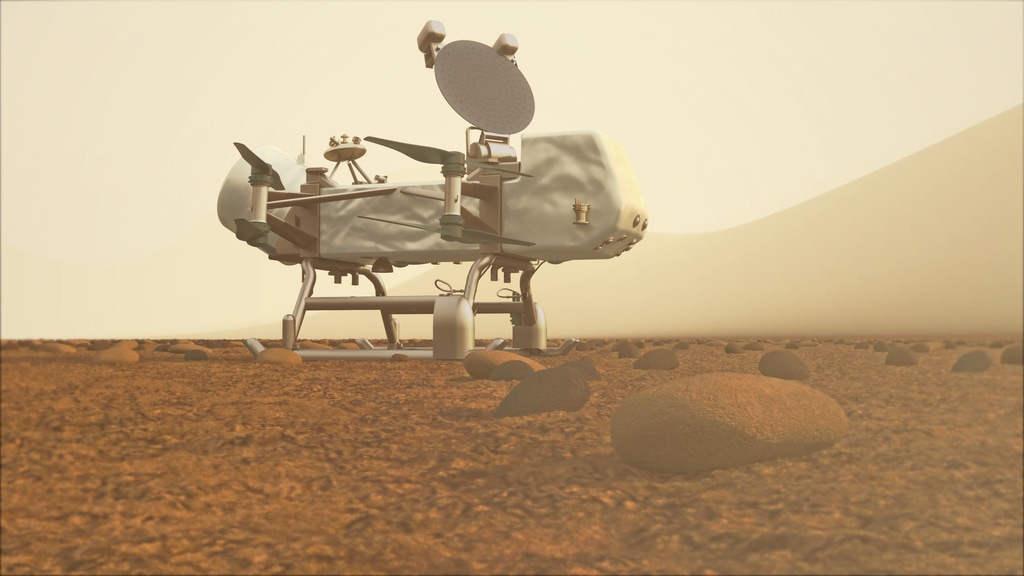NASA Science Live: NASA's Next New Frontiers Mission [Special Edition]
NASA Science Live: NASA's Next New Fountiers Mission [Special Edition]
Program Aired June 27, 2019
NASA has announced that our next destination in the solar system is the unique, richly organic world Titan. Advancing our search for the building blocks of life, the Dragonfly mission will fly multiple sorties to sample and examine sites around Saturn’s icy moon.
Dragonfly will launch in 2026 and arrive in 2034. The rotorcraft will fly to dozens of promising locations on Titan looking for prebiotic chemical processes common on both Titan and Earth. Dragonfly marks the first time NASA will fly a multi-rotor vehicle for science on another planet; it has eight rotors and flies like a large drone. It will take advantage of Titan’s dense atmosphere – four times denser than Earth’s – to become the first vehicle ever to fly its entire science payload to new places for repeatable and targeted access to surface materials.
Credits
Please give credit for this item to:
NASA's Goddard Space Flight Center
-
Hosts
- Grey Hautaluoma (NASA/HQ)
- Sophia Roberts (Advocates in Manpower Management, Inc.)
-
Talents
- Curt Niebur (NASA/HQ)
- Elizabeth Turtle (Johns Hopkins University/APL)
- Lynnae Quick (NASA/GSFC)
-
Producer
- Emily Furfaro (MORI Associates)
-
Director
- Rich Melnick (KBR Wyle Services, LLC)
-
Associate producers
- Scott Bednar (National Institute of Aerospace)
- Seth Robinson (National Institute of Aerospace)
-
Technical director
- John Caldwell (Advocates in Manpower Management, Inc.)
-
Editor
- Michael Randazzo (Advocates in Manpower Management, Inc.)
-
Graphics
- Liz Wilk (USRA)
-
Audio technician
- Mike Velle (KBR Wyle Services, LLC)
-
Floor director
- Swarupa Nune (InuTeq)
-
Videographers
- Harrison Bach (Intern)
- Katie Jepson (USRA)
- Jefferson Beck (USRA)
-
Engineer
- Pat Kennedy (KBR Wyle Services, LLC)
-
Technical support
- Cassandra Ruiz (Intern)
-
Graphic designer
- Matthew Schara (National Institute of Aerospace)
Release date
This page was originally published on Thursday, June 27, 2019.
This page was last updated on Wednesday, May 3, 2023 at 1:45 PM EDT.
